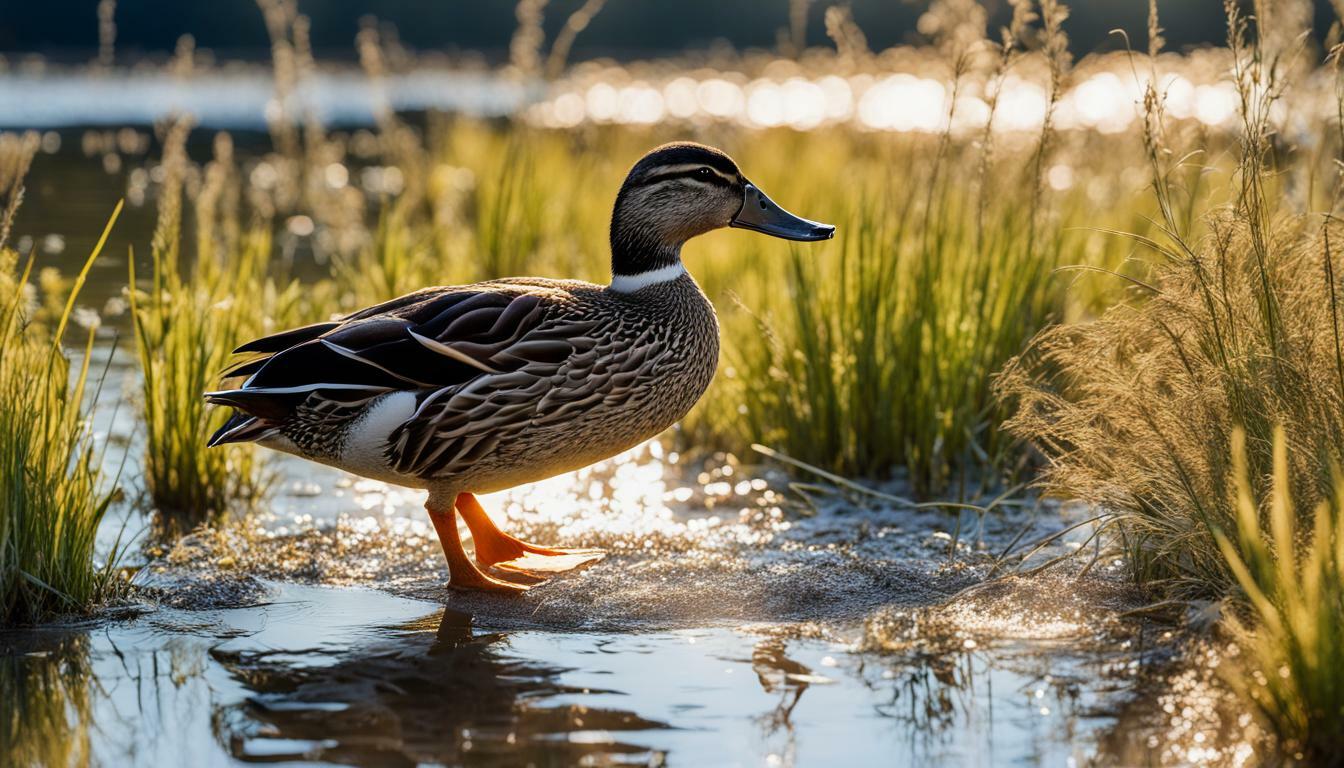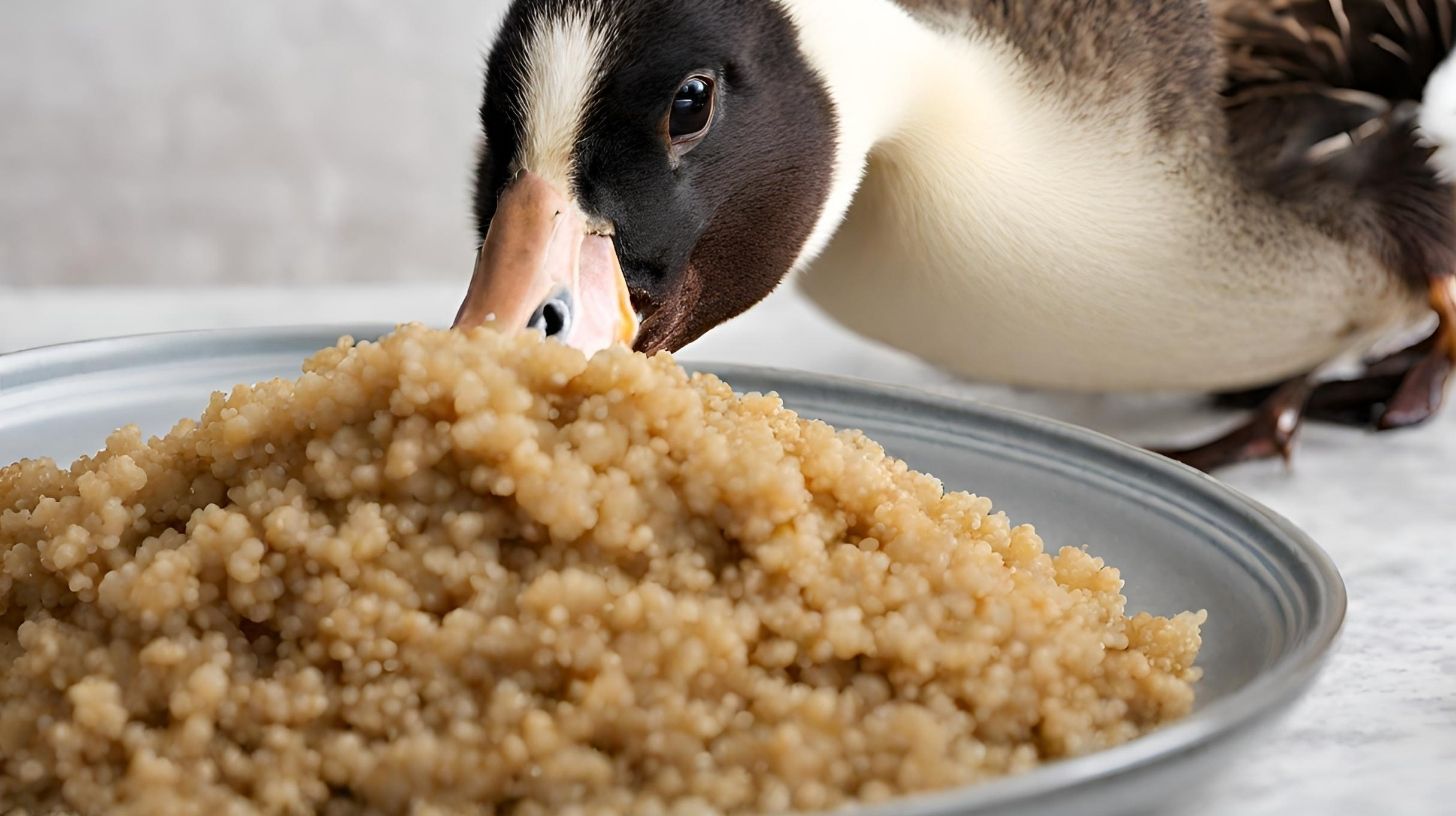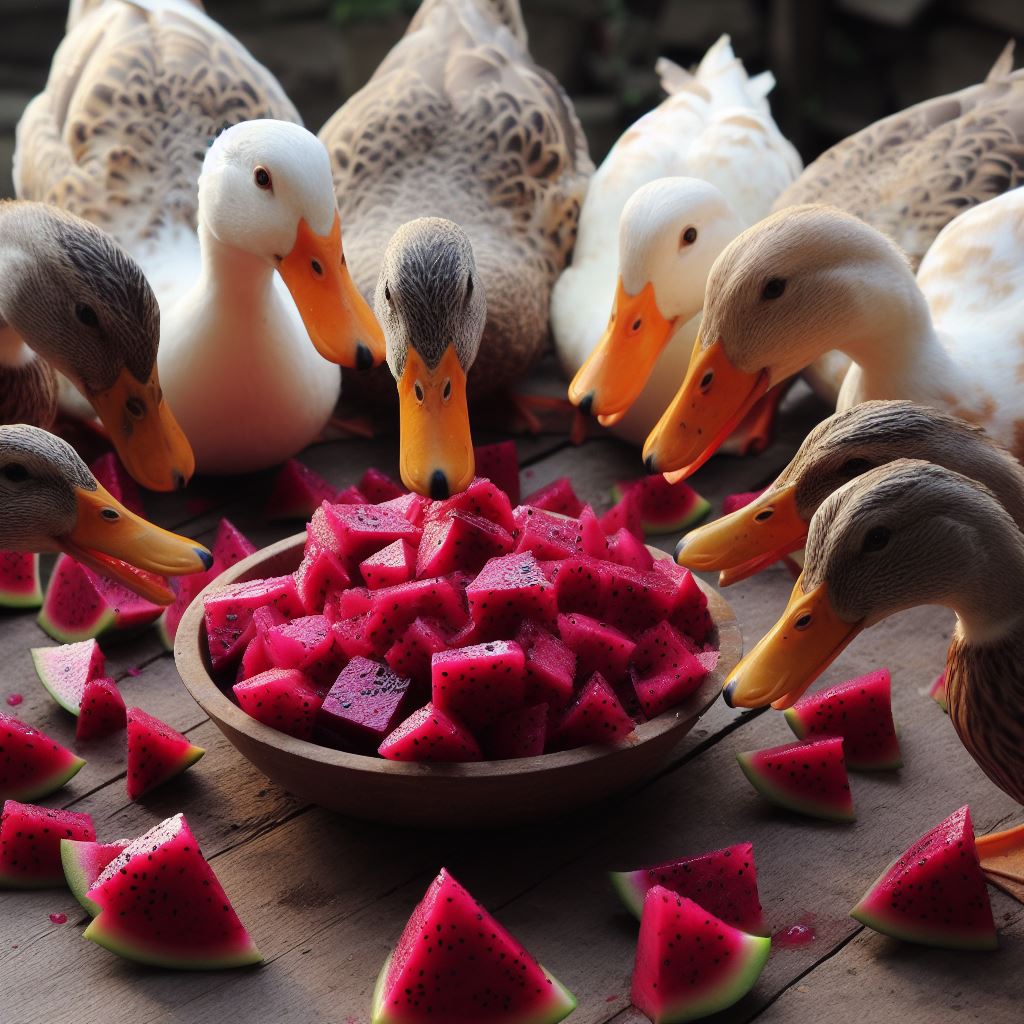Why Is My Duck Panting? Understand Your Duck’s Behavior

Daftar isi:
Panting, also known as open-mouth breathing, is common in ducks and can indicate a few different things. Rapid or heavy panting is generally a sign that your duck is too hot, suffering from heat stress, or potentially has a respiratory issue. Understanding the causes and treatments for duck panting can help you keep your feathered friends healthy and comfortable.
What Does Panting Mean in Ducks?
Panting or heavy breathing through an open mouth is how ducks try to cool down. When a duck pants, it is quickly inhaling and exhaling to evaporate moisture from its throat and respiratory tract. This helps lower a duck’s body temperature.
Ducks don’t have sweat glands like people do. Panting allows air movement over the moist surfaces in a duck’s mouth and throat, providing an efficient means of cooling. This is similar to how dogs pant to stay cool.
Normal Duck Panting
Mild or occasional panting is normal for ducks, especially when temperatures are high. Ducks do not handle heat as well as other poultry due to having a thick layer of insulating feathers. Watching your ducks closely can help you determine what is normal panting versus signs of heat stress or illness.
Factors that can lead to normal panting in ducks include:
- Hot temperatures – Ducks will pant to cool themselves on hot days.
- Exercising – Waddling around or flapping wings can raise a duck’s body temperature, leading to temporary panting after activities.
- Excitement – Some panting can occur when ducks are eagerly anticipating food or attention from their caretaker.
- Growing ducklings – Young ducks tend to pant more frequently as they are rapidly growing. Their bodies are working hard, which generates more internal heat.
Temporary, rapid breathing with an open mouth after one of these activities is usually nothing to be concerned about. The panting should stop within a few minutes after the duck has cooled off and recovered.
Heat Stress and Panting
Excessive panting can signify a duck is getting dangerously overheated. Ducks are prone to heat stress, especially in temperatures over 85°F. Additional factors like high humidity, lack of shade, and poor ventilation increase their risk.
Signs your duck could have heat stress include:
- Open mouth breathing with neck stretched out
- Rapid panting for extended periods
- Spreading wings away from the body
- Holding wings slightly away from the body
- Listlessness and lethargy
- Lack of appetite
- Dark red comb and wattles
If your duck is displaying these behaviors along with constant heavy panting during hot weather, immediate action is required to cool it down and lower body temperature.
How to Cool an Overheated Duck
There are several methods you can use to help an overheated duck return to normal:
- Move the duck to the shaded area
- Provide cool, not cold, water for drinking
- Lightly mist the duck’s body with cool water
- Offer electrolyte solution to prevent dehydration
- Place the duck in a shallow bath with wings outstretched
- Use fans to circulate air over the duck
- Wet down the ground area where the duck rests
Closely monitor your duck’s breathing. As body temperature lowers, the panting should gradually slow and return to normal. Preventing heat stress is ideal by providing ducks ample shade, ventilation, and cool water in hot weather.
Rapid Duck Panting and Respiratory Issues
Sometimes fast duck panting is not related to high temperatures. Other times panting may not subside when the duck is moved to a cooler area. This can indicate a respiratory system problem making it difficult for the duck to breathe.
Possible respiratory causes for heavy duck panting include:
Upper Airway Obstructions
Blockages in the upper airways from mucus, debris, injury or illness can restrict airflow. Ducks may pump their necks while breathing rapidly to try to dislodge obstructions.
Aspergillosis
This fungal infection impacts the respiratory tract. It causes labored breathing, wheezing, and discharge from the eyes, nose, or mouth.
Sinusitis
Sinus infections lead to congestion and obstructed airways. Panting is an attempt to move air through swollen sinuses.
Conjunctivitis
Swollen, infected sinuses around the eyes can make breathing through the nose difficult. The duck must pant through its mouth instead.
Pneumonia
Respiratory pneumonia causes fluid buildup and inflammation in the lungs. Ducks pant to try getting oxygen with impaired lungs.
Trauma or Injury
Broken bones, puncture wounds, or other trauma to the chest can lead to collapsed lungs or air sac damage. This results in fast, heavy, open-mouth breathing.
Respiratory Parasites
Worms, larvae, or external parasites like mites can infest a duck’s airways. This irritates the respiratory tract and impairs breathing.
If panting persists when your duck is cooled down and removed from heat stress, a veterinary exam is recommended. Medication or other treatment may be prescribed to resolve the underlying respiratory issue.
When to Seek Emergency Care
While mild to moderate panting is usually not an emergency, some situations require urgent medical intervention:
- Panting accompanied by blue or white mucus membranes (indicating oxygen deprivation)
- Neck extended high during breathing, “pumpkin head” posture
- Abnormally slow, shallow, or strained breathing
- Tail bobbing with each breath
- Lethargy, inability to stand
- Loss of consciousness
Any of these signs mean your duck is having extreme difficulty breathing. This requires oxygen therapy and aggressive treatment to prevent death. Immediate veterinary assistance is vital.
Preventing Heat Stress and Breathing Issues
You can take proactive steps to minimize panting and respiratory problems in your ducks:
- Provide shade/cool housing
- Ensure good ventilation in duck areas
- Provide clean, cool drinking water
- Limit handling ducks on hot days
- Avoid overcrowding in enclosures
- Control parasites/mites
- Clean feeders/waters to prevent mold
- Separate sick ducks promptly
- Practice good biosecurity
- Have new ducks examined by a vet
- Quarantine any new duck arrivals
- Discuss vaccinations with your veterinarian
Good flock management greatly reduces the chances of respiratory illness. Maintain clean, dry housing with adequate space per duck. Monitor for illness, isolate sick ducks, and work with a vet to diagnose and treat any respiratory issues that arise.
When to Call a Veterinarian About Duck Panting
Schedule an appointment with your veterinarian if:
- Panting is frequent and persists for more than a day
- Panting continues after heat mitigation efforts
- Other signs of illness are present – lack of appetite, lethargy, discharge, injuries, etc.
- Duck shows signs of respiratory distress
- You notice audible wheezing, coughing, sneezing or raspy breathing
- More than one duck is showing respiratory signs
- Duck stops eating and drinking due to heavy breathing
Your vet can pinpoint the cause through exams, diagnostic testing, and lab work. This allows prompt, appropriate treatment to relieve any obstruction, infection, or other issue impeding normal respiration.
Final Thoughts
Observing your ducks’ breathing patterns helps you recognize when panting behaviors are normal versus problematic. While temporary panting is expected on hot days or with exercise, excessive or persistent heavy breathing requires intervention. Know the signs of heat stress and respiratory illness so you can respond appropriately. With proper flock management and veterinary care as needed, you can have happy, healthy ducks!
Welcome. I’m Adreena Shanum, the proud owner of this website, and I am incredibly passionate about animals, especially poultry. I founded adreenapets.com as a labor of love, stemming from my desire to share my knowledge and experiences with poultry enthusiasts worldwide.




